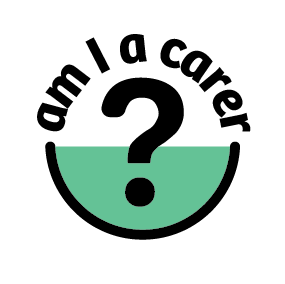How to communicate
with health and social care professionals

When trying to communicate with health and social care professionals (doctors, nurses, social services), you may experience difficulties. You may feel they ignore you and the challenges you face as a young carer. This can happen because the person:
- Has not understood the information you have given them.
- Understands, but thinks you are coping OK.
- Understands, but does nothing because it is not in their personal interests; believe there is nothing they can do; believe it is not their responsibility.
‘Did you say something about me becoming a full-time carer?’
Some public sector workers (doctors, nurses, social workers, etc) have been excellent in providing help, whilst I feel I have been failed by many others. I have met a lot of public sector workers who were uninterested and unrealistic. Many of them filled in forms without actually doing anything, made judgements without knowing any facts, and repeatedly assumed I was willing and able to provide support without understanding anything about my life. … I received...read more→
Professionals must be able to understand how to behave on a case-by-case basis
Health and social services professionals should be the willing to understand and respect the specific needs of young carers. Each young carer has different needs: for example, there are those who wish for immediate intervention by professionals and those who, instead, prefer to be helped gradually. Professionals must be able to understand how to behave on a case-by-case basis in order not to be intrusive or seem indifferent to the needs of the young person...read more→
You have many rights as a child and as a young carer, that health and social care professionals have to respect! Here are some of them:
- The right to choose whether you want to be a carer and with what limits
- The right to be supported in your caring role
- The right to be involved in the decisions that regard the care plan of the person you care for
- The right to be treated with respect
- The right not have your situation shared with others without your permission (except if they are worried about your safety)
- The right to be given information in words you understand
You need to understand the situation about the person receiving care. If you are considered old enough to provide care, you are old enough to be told.
Some adults might be reluctant to tell you the truth, believing that you are a child and therefore you should be sheltered from it. But if you do not know the truth there will be some things you are uncertain about, and these may lead to you feeling even higher levels of stress.
When meeting with a health professional, prepare a list of questions (and take notes of their answers).
Here is a list of questions you might like to ask:
- How does my relative’s condition affect their body / mind?
- Can I catch it (is it contagious)?
- How are they being looked after – what is their treatment plan?
- How can I best help them?
- Are they taking any medication? What does it do? What happens if they don’t take it?
- What do I need to do in an emergency?
- Is it going to get better, worse or stay the same? How can I tell?
- Is it likely that I will suffer from the same condition later (is it hereditary?)
- Do you have any more information or do you know where I can get it (on the internet, factsheets, organisations)?
Though your doctor might not be able to answer specific questions about your relative without their permission, they can give you a good idea of what is going on and how to help.
If you are meeting social/health professionals, you can discuss your role as carer and ask information about your rights and support available. Do not expect other people to understand your life as a young carer. Some people will not investigate or question how you live. Those that do see how you live may choose to ignore it or assume you are happy because you have not complained. Therefore, if you are not happy with your normal daily life, you need to tell people.
When you tell people you need to explain every detail of your life as a carer. Don’t assume that people will link together pieces of information.
Make some notes beforehand to take with you, to ensure that you mention everything you want to. For example:
- Who do you care for?
- What caring tasks do you do?
- Do you feel you receive support as a young carer?
- Does being a young carer have a negative effect on your personal life?
- Does being a young carer have a negative effect on your school life and ability to do homework?
- Does being a young carer upset you, for example, make you unhappy, stressed or angry?
- Does being a young carer have a negative effect on other parts of your health?
You can ask for the information to be put in written.
If you want to continue as a young carer, there may be help that others can provide that would improve your circumstances. You must remember that it’s not selfish to ask for help. Ask yourself:
- Do you want to continue being a young carer?
- If you do want continue as a young carer, what support would you like?
- Why would this help you?
You could list some things that would help you. These are entirely your choice, but examples could be time when someone else provided care so you could pursue hobbies, spend time with friends, study or simply have a break.
Some adults may try to make all the decisions themselves because you are a child. However, if you are providing care you should be treated with respect, involved in any family decisions, and your opinions should be taken seriously. You are entitled to know what you are dealing with and you should say this to the adults in your family and to professionals. If you are not involved in decisions, the situation will be even more stressful for you.
Try to set some rules about your role as a carer. Some possible questions to ask are:
- What are my responsibilities?
- What are other people’s responsibilities?
- How are the caring tasks shared fairly?
- What support will I receive to perform caring tasks?
- What support will I receive to do activities that are important to me?
- Who will help if my caring role has a negative impact on my education?
Don’t be afraid to express your emotions about being a carer. It is OK to say things like:
- I feel worried all the time.
- I feel lonely.
- My situation makes me angry.
You may have to deal with difficult people. Some people might interrupt you, speak over you, tell you to “shhh”, and say things like “stop complaining” or “stop whinging”.
If this is the case, you either need to speak to the same person but communicate differently to make them take action, or speak to someone else.
Some suggested things you could say are:
“I have explained that I am a young carer and that I cannot continue to provide all the care myself.”
“You have decided that it is acceptable to leave me in this awful situation, which is very disappointing.”
“If you continue to provide no help I will speak to a variety of doctors, nurses, teachers and social workers until I find someone who takes me seriously. I will tell them that I asked you for help and you refused.”
“I know my rights. If you refuse to help I will approach charities to explain my situation and ask for support.”
If people ask questions, they should ask open questions, which allow you to explain your opinion. Examples of open questions are: ‘What do you think?’, and ‘What do you suggest?’
You should watch out for closed questions, which only allow a yes or no answer and unreasonable questions, which give a one-sided opinion and try to undermine your opinion. Examples of these sorts of questions are: ‘You are managing OK, aren’t you?’, ‘I’m sure you agree with me about XXX?’ and ‘Do you really expect me to help looking after your mother?’
If adults ask questions that do not allow you to tell your story, try and reply with: “Answering that specific question would not tell the whole story. Let me explain …”
Try to remain calm. If you start criticising others (e.g. for not understanding your problems or for leaving you in a difficult situation), they may become defensive and stop listening to you.
If you don’t feel listened to and you’re not getting the support that you need, don’t give up. Keep going until you find someone that can help you.
(This section is inspired by the website youngcarer.info by Mike Raynor, former young carer, UK and from Young carers companion, Information booklet for Young Carers, Family Carers Ireland)










